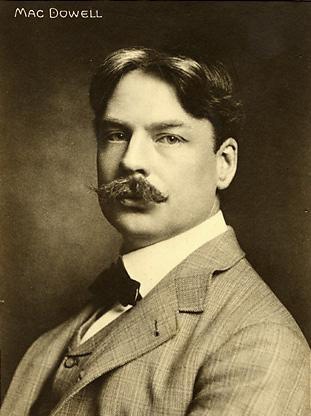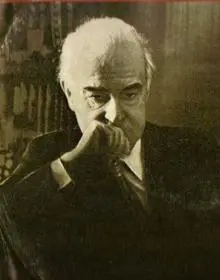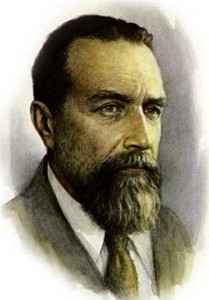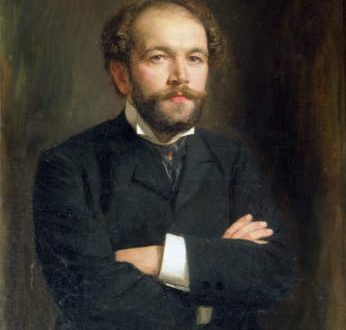
Edward Alexander MacDowell |
Edward MacDowell
Scottish by nationality. He studied piano as a child with M. T. Carregno, in 1876-1878 – with A. F. Marmontel (piano) and M. G. O. Savard (composition) at the Paris Conservatory, with C. Heyman (piano) and I. Raffa (composition) at the conservatory in Frankfurt am Main. In 1881-1882 he taught piano at the Darmstadt Conservatory. From 1888 McDowell lived in Boston, performed in author’s concerts. As a composer, he was formed under the influence of the aesthetic and educational ideas of F. Liszt, the traditions of the romantics (the principle of synthesis of poetry and music), especially R. Schumann, as well as E. Grieg. MacDowell’s debut as a composer in Weimar (First Modern Suite, 1883) was approved by Liszt, who contributed to the publication of his early works. In 1896-1904 he headed the music department at Columbia University in New York (the first in the USA) and was its professor. As a result of a conflict with the administration of the university, connected with the reform of musical education he developed, he was forced to leave teaching. The lectures he gave were published posthumously in the form of a collection of Critical and Historical Essays (Boston – NY, 1912).
McDowell argued that a truly national musical art should not only use musical folklore, but also embody the features of the spiritual structure, character, culture of the people and the nature of the country. One of the founders of the American professional school of composers, McDowell for the first time (in large forms) turned to folk national (Indian) song (the theme of the “Funeral Song” from the 2nd “Indian Suite” is based on an authentic recording of an Indian funeral lament) and images of American literature (romantic short stories by W. Irving, N. Hawthorne, lyric poetry by G. Longfellow, D. R. Lowell, etc.).
McDowell’s characteristic romantic reverie, a penchant for depicting the idyllic side of life, lyrical images and moods were reflected in Fireside Tales (6 plays, Fireside Tales, 1902), New England Idylls (10 plays, New England Idyls”, 1902), “Forest Sketches” (10 pieces, “Woodland sketches”, 1896), “Forest Idyls” (4 pieces, “Forest Idyls”) and other software miniatures for piano, as well as in poetic vocal cycles on own texts.
McDowell’s work won him widespread popularity in the United States during his lifetime. In symphonic poems, orchestral suites, piano concertos and sonatas, lyrical episodes are most vivid, especially those associated with northern romance. “Northern” (3rd) and “Celtic” (4th) sonatas McDowell dedicated to E. Grieg (McDowell was called “American Grieg”). Melodiousness, a tendency to romantic reflection of images of nature are typical of his composing style. McDowell highly valued the works of Russian composers, especially P. I. Tchaikovsky; he owns piano transcriptions of orchestral works by A. P. Borodin and N. A. Rimsky-Korsakov. In 1910-1917, the McDowell Memorial Society held an annual 4-day McDowell Music Festival in Peterborough, New Hampshire.
Compositions: for orchestra. – 3 symbols. poems: Hamlet and Ophelia (1885), Lancelot and Elaine (according to A. Tennyson, 1888), Lamia (according to J. Keats, 1889), 2 fragments from the Song of Roland – Saracens, Beautiful Alda (The Saracens, The lovely Aida, 1891), 2 suites (1891, 1895); for instrument with orc. – 2 fp. concerto (a-moll, 1885; d-moll, 1890), romance for wolves. (1888); for fp. – Modern suites (Modern suites, No 1, 2, 1882-84), 4 sonatas: Tragic, Heroic, Northern, Celtic (Tragica, Eroica, Norse, Keltic, 1893, 1895, 1900, 1901), 6 whims (Six fancies , 1898), 6 idylls (according to I. W. Goethe, 1887), 6 poems (according to G. Heine, 1887), Orientals (according to V. Hugo, 1889), 8 Marionettes (Marionettes, 1888-1901), Sea scenes (Sea pieces, 1898), 4 Forgotten fairy tales (1898) and other cycles of plays, 12 studies (2 books, 1890), 12 virtuoso studies (1894), Technical exercises (2 books, 1893 , 1895); for 2 fp. – 3 poems (1886), Moon pictures (Moon pictures, no X. K. Andersen, 1886); polygonal choirs, ch. arr. for husband. votes; song cycles – 3 on own. words, incl. From an old garden (6 songs, 1887), 2 on the next. R. Burns (1889), 6 on ff. W. X. Gardena (1890), on the next. J. W. Goethe, Howells; 2 Old songs (Two old songs, 1894).





